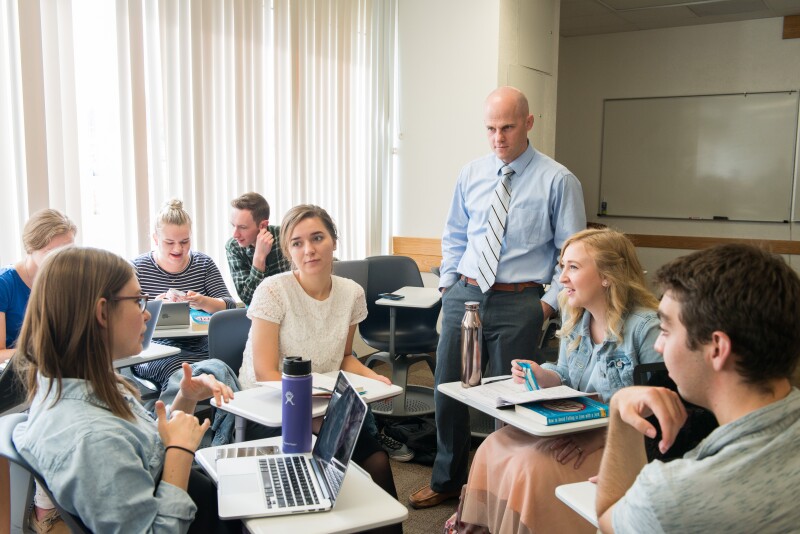
The College of Education and Human Development
Ready to make a difference in the world? Become a part of the College of Education and Human Development! Choose from 17 programs in elementary, early, and special education, home and family, psychology, sociology, and social work.
The College of Education and Human Development is dedicated to helping every student promote spiritual, emotional, and social wellbeing in their education, family, home, and communities. You can fill vital needs in a variety of industries, from anything to teaching to mental health, or even advance to a graduate program to increase your learning.





